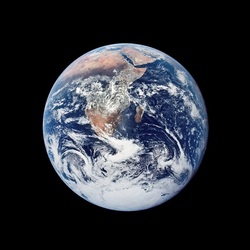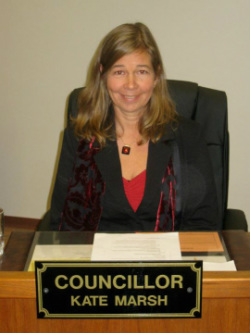One of the latest buzz words is "sustainability," but what is it really? When we think about life on planet Earth, what would sustainability look like?
Many running or elected politicians would like to tell you that they have all the answers. Vote for them, give them a stronger mandate, and they will fix the problems. I think we all know that's too simplistic.
Sustainability requires managing growth in ways that ensure that our economy and society can continue to exist without destroying the natural environment on which we all depend. We're learning that anything we develop, our grandchildren must be able to live with, safely and healthily.
"Whatever the future holds, one thing is clear: Change is inevitable. There is no comfortable scenario in which we just carry on as before," write Tim Jackson (University of Surrey, UK) and Peter Victor (York University, Toronto). They lay out their ideas in an article in The Vancouver Sun, September 18, 2011.
http://www.vancouversun.com/business/Prosperity+without+growth+possible/5422347/story.html#ixzz1Z5dHsIKX
They note that the "economic growth myth" has "already been accompanied by the degradation of an estimated 60% of the world’s ecosystems." If we keep following that model, how long will it be until 70% - 80%- or even 100 % of the world's ecosystems are degraded? What would that mean for life on earth? Not just in some far away place, but right here in North Cowichan?
Sustainability requires that we manage all our households -- individual, community, national, and global -- in ways that make sure we and the environment can continue to exist.
"Prosperity for the few," Jackson and Victor remind us, "founded on ecological destruction and persistent social injustice, is no foundation for a civilized society. Economic recovery is vital. Protecting people’s jobs – and creating new ones – is absolutely essential. But we also stand in urgent need of clearer visions, braver policy-making and a renewed sense of shared prosperity."
Seems to me it's long past time we realized we don't yet have all the answers. Nobody does. Instead, we need to keep on asking the questions, fearlessly. If we can live with the questions, the poet Rilke encourages us, we'll live ourselves into the answers.
North Cowichan, with input from its residents, recently passed an "Official Community Plan." It sets out a vision and values that are meant to guide decision-making about our future. First among its five key principles is -- "sustainability."
The Plan defines this by saying we must "balance the right of future generations to a healthy, resource-rich environment with the needs of the current population." It says we must do this in every decision, as the best way of "assessing whether or not a particular course of action is appropriate." In every decision, then, we must ask "Is this decision sustainable?" -- in the fullest sense of the word.
The Plan also says it belongs to every resident of North Cowichan, and that we are -- all of us -- responsible for making it work.
If we all start working together, now, looking at the tough questions, we might just make ours a sustainable community.


 RSS Feed
RSS Feed
